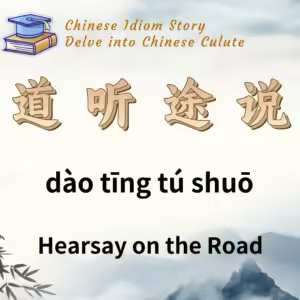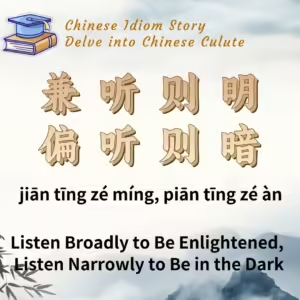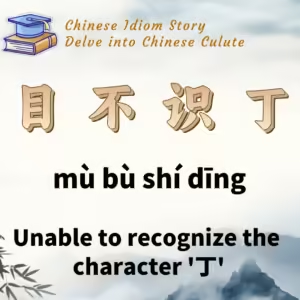
Chinese Idiom: 道听途说 (Dao Ting Tu Shuo)
English Translation: Hearsay on the Road
pīn yīn: dào tīng tú shuō
Idiom Meaning: It refers to rumors or information heard along the way that lacks credible evidence; gossip.
Historical Source: Lüshi Chunqiu (The Annals of Lü Buwei), specifically in the chapter “Investigation.”
Idiom Story:
Idiom Story:
In the State of Song, there was a family with the surname Ding who did not have a well and had to send someone out every day to fetch water. Eventually, the Ding family dug a well at home and happily told their neighbors, “I’ve dug a well and found a person!” This statement was misunderstood and spread throughout the neighborhood, transforming into the rumor: “The Ding family dug a well and found a person.”
As the story spread, it reached the king of Song. Skeptical of this bizarre claim, the king ordered his officials to inquire directly with the Ding family. When they did, the Dings clarified, “We dug a well, so we no longer need someone to fetch water every day; we didn’t literally find a person in the well!”
Additionally, the Analects of Confucius states: “道听而途说,德之弃也.” This translates to: “Hearsay on the road, spread everywhere, is a practice that should be discarded by those of virtue.” This emphasizes the importance of verifying information rather than accepting and spreading unfounded rumors.
Based on these accounts and stories, the idiom “道听途说” emerged, illustrating the concept of spreading unverified information.






